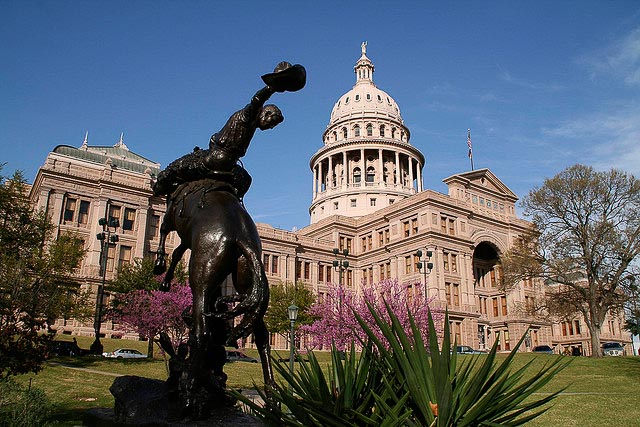In Houston, the state's largest city, residents generally describe themselves in left-of-center terms. Our annual Houston surveys indicate residents firmly oppose laws that would further restrict abortions, support granting a path to citizenship for illegal immigrants, and are rethinking their support for the death penalty.
Earlier this spring, The Houston Chronicle noted the disconnect between those political beliefs and the Texas "myth," which - in the newspaper's view - portrays our state as a place that "relishes the death penalty, that's obsessed with guns, that's anti-education, anti-science, anti-immigrant, and anti-environment." This, too often, is the image Texas presents to the outside world. It's not exactly one our elected leaders run away from, but it's far from the one that most Texans would embrace.
A friend recently sent me a letter after reading the editorial about the Texas myth. If Texans are as progressive as they say they are in the surveys, he wondered, why don't they simply elect people to office who share their views? This is a critical question and one I'm often asked when we discuss the survey findings.
"What I don't understand is that those same ordinary Texans keep electing the very politicians who too frequently perpetuate the myths and the stereotypes," my friend wrote.
Why indeed is there such a large disjuncture between "public opinion," which is what our surveys measure by asking people in the privacy of their homes how they see the world, and "politically-effective opinion," the views that actually get translated into public policy? Who controls the political apparatus? Why is public opinion so often at odds with public policy?
We see that discrepancy everywhere. Here are some recent examples from our surveys:
- Gun control: In the 2013 survey, 81 percent of Harris County residents said they were "strongly" in favor of "requiring universal criminal background checks for all gun sales," with only 11 percent either slightly or strongly opposed.
- Minimum wage: In 2014, the survey respondents were given these opposing arguments: "Some people say the minimum wage should be raised to help low-income workers get by. Others say raising the minimum wage will lead to fewer jobs." Seventy-one percent said they favor raising the minimum wage, with just 28 percent opposed.
- Legalization: In the 2015 survey, 72 percent of area residents were in favor of "granting illegal immigrants in the U.S. a path to legal citizenship, if they speak English and have no criminal record."
- Death penalty: This year, only 56 percent of the survey participants supported the death penalty for persons convicted of murder, down from 75 percent in 1993 and no different from today's national average of 58 percent. Yet Harris County continues to be the "death penalty capital of America," having executed more people since 1976 (when the Supreme Court reinstated the practice) than any other county in the nation.
So why the disjuncture? Social scientists point to a variety of converging forces, among them the following:
- Turnout: Registered voters who are less affluent, younger and disproportionately non-Anglo are everywhere less likely to vote than older, more affluent Anglos - unless they have a special reason to go to the polls. In other words, as the Houston-area population quickly becomes younger and less Anglo, the changing demographics will not be reflected as quickly at the polls.
- Single-issue voting: Voters who are intensely pro-gun, pro-life, or anti-gay are more likely to vote on those issues alone than are the voters who support gun control or gay rights, but who also hold a variety of other views with equal conviction.
- Redistricting: The gerrymandering of voting districts has often made winning the primaries virtually tantamount to getting elected. Primary voters are usually more extreme in their views than the electorate as a whole, and most of the latter feel little incentive to vote in the general elections, since the outcomes are seen as foregone conclusions. Thus, it's not surprising that Texas cities like Houston and Dallas have lower voter turnout rates than is true for most other major cities in America.
- The influence of money: The "donor class" has enormous power to dictate what policies are deemed to be politically acceptable, regardless of the views of the general public. Louis Brandeis, Supreme Court Justice in the 1920s, said it well: "We can have democracy in this country, or we can have great wealth concentrated in the hands of a few. We cannot have both."
The "ordinary Texans" - the ones we reach in our representative samples of Houston area residents - are simply not the same people as those who are in a position today to shape the public policies of the state.

